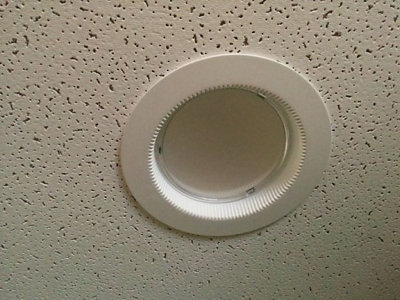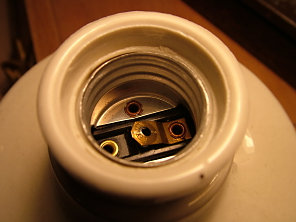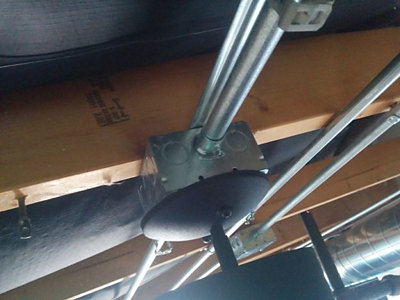Why Do My Light Bulbs Burn Out So Fast?
Are light bulbs in your home burning out in a matter of months or even weeks? That’s no good.
Here are the top reasons we see bulbs go out quickly in Florida.
A bad batch of bulbs
The new bulbs you bought may have been bad.
What to do: Send the bulb in to the manufacturer or bring it back to where you bought it. Most LED and CFL bulbs have warranties. You can also try a different brand bulb
Excessive heat buildup
LED bulbs are especially sensitive to heat, though too much heat can shorten the lifespan of incandescent and CFL bulbs, as well.
Light bulbs that are fully enclosed (like in globes in ceiling fans) are more susceptible to premature failure from excessive heat because the enclosure traps the heat.
We see this problem especially in recessed lights. Recessed lighting (sometimes referred to as can lighting) are lights that are hidden in your home’s ceiling. To help ventilate the heat created by lights, there are holes in the fixture that vent the heat into your attic. However, these holes can get clogged by insulation in the attic, leading to a buildup of heat the kills your bulbs prematurely.

What to do: Make sure that the vent holes in your recessed lights aren’t blocked by insulation. Also, make sure you get a bulb that is specifically made for enclosed fixtures and/or recessed fixtures (this should be apparent on the packaging.)
Bad electrical connection
Bad electrical connections in or at your fixtures causes problems like higher voltage, increased heat, and arcing, which can cause your bulbs to burn out quickly. Here are a few things you can check:
Bulb screwed down too tight
Many homeowners screw in their bulbs too tight, which creates a bad connection, leading to arcing that shortens your bulb’s lifespan. Here’s how: Look in the socket of your fixture. You should see a metal tab in the center.

When you over tighten your light bulbs, you bend the spring back. Then, eventually, when the bulb has to be replaced, it doesn’t make adequate contact with the bottom of the new bulb.
And when the brass tab at the base of the socket does not make firm contact with the bottom of the light bulb, a small electrical arc can happen, which shortens the bulb’s lifespan.
What to do: If the tab is bent you’ll need to turn the power off and then use a needle nose pliers to bend it forward (should be at about a 20-degree angle from the bottom of the socket). To keep this from happening in the future, when replacing a bulb:
- Turn the fixture on
- Screw in the bulb until it lights up
- Tighten with another ⅛ of a turn
Loose/poorly connected wires
Loose wires in the junction box of your light fixture (or in the fixture itself) can cause variations in voltage to your bulb. Basically, these variations act like miniature power surges that wear out incandescent, LED and CFL bulbs. Sometimes these loose connections can burn out your bulbs in a matter of days.
What to do: With the power off, remove the fixture from the ceiling or wall and check the electrical connections in the junction box. They should be tight and connected with the appropriate size wire nuts. Hire an electrician if you’re uncomfortable doing this yourself.

Incompatible lights/dimmer switches
If you’ve recently upgraded your lights to LED or CFL bulbs and have dimmer switches, you will likely need to upgrade your dimmer switches. Old dimmer switches were designed for use with incandescent and don’t play well with new dimmable LED and CFL bulbs.
The new LED and CFL bulbs may work for a while in the old dimmers and then burn out. (Or they might not work at all.)
The reason? CFL and LED bulbs are very different than old incandescent. They have complex circuitry in the bottom of the bulbs. Old dimmer switches can damage this circuitry, causing the bulbs to burn out quickly and need to be replaced.
What to do: Replace your old dimmer switches with new ones that are specifically made to work with the bulb you’re using (LEDs or CFLs).
Excessive vibrations
Light bulbs (especially incandescent and CFLs) in fixtures that vibrate a lot, like ones in ceiling fans, next to front doors and in garage door openers, will burn out more quickly.
The vibrations break the filament in incandescent and cause the electronic components in CLFs to separate.
What to do: First, ensure the fixture is well-secured in order to reduce vibrations. Then switch to LED bulbs or “rough service” incandescent bulbs as they’re less prone to problems from vibrations.
Rapid switching on and off
This one only really applies to CFL bulbs. The electrodes inside a CFL are stressed each time they are turned on. This causes the electrodes to eventually degrade and fail.
In other words, the more a CFL is turned on and off, the faster it will die. Even if it’s rated for 10,000 hours, it may only last 4,000 if it’s only on for 15 minutes at a time.
What to do: For lights that are frequently turned on and off (like a bathroom, garage, motion-sensing fixtures, etc.), use LED bulbs instead of CFLs.
High voltage to your home
If all the lights in your home seem to burn out quickly, the most likely cause is a whole-home problem like high voltage. You see, electricity is supposed to flow into your home at a steady 120 volts. And that’s what light bulbs are made to work with.
Unfortunately, that’s not always what happens. Many homes in Sarasota have electrical service that fluctuates as high as 130 volts. While this might not seem like much, it’s enough to shorten your light bulbs’ (and other electronics in your home) lifespans considerably.
What to do: If you suspect this is the problem, have an electrician check it out. If they determine your home’s electrical supply is too high, you may need to talk to the city to have them fix the issue.
Energy Today is a team of award-winning electricians that serves communities throughout Florida.